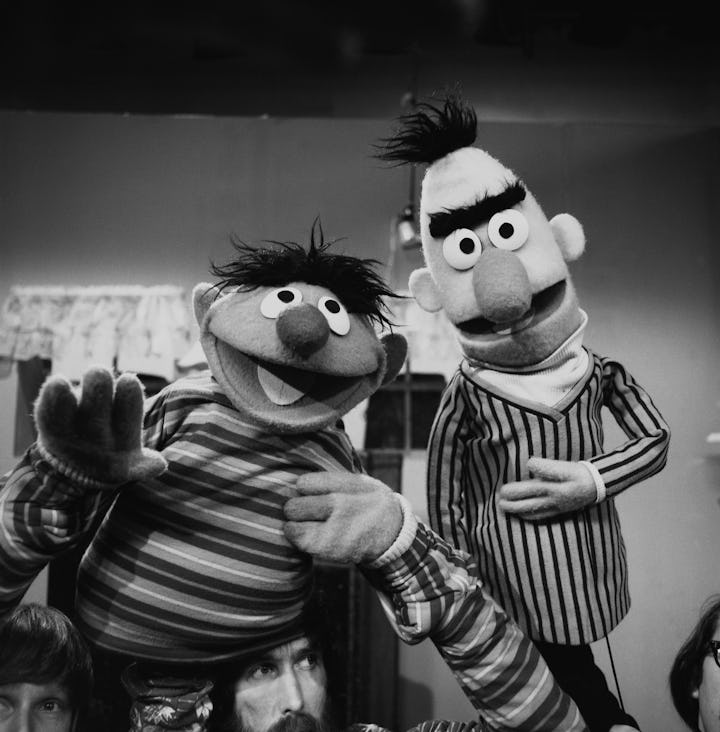Sesame Street Is About to Be “Re-Imagined.” Should Parents Be Worried?
Everything you thought you knew about the best kids’ show of all time is about to change.

The beauty of Sesame Street in its 1970s prime was that it could conceivably be anything. It was as limitless and as magical as a child’s imagination. A gorgeous piece of animation accompanied by a ditty so infectious it never leaves your subconscious could then be followed by a vaudeville-style sketch involving puppets and then Johnny Cash or some other legendary performer interacting with beloved creatures from Jim Henson’s empire of felt. When it debuted in 1969 Sesame Street was an offspring of a variety of extravaganzas like The Ed Sullivan Show, which Jim Henson appeared on twenty-five times. The idea of variety shows was to provide a little bit of everything and not too much of any one thing.
But those days are coming to an end. The basic format of Sesame Street is about to be utterly rebooted, and it might make parents, very, very afraid. As The Hollywood Reporter revealed on October 30, 2023, the show is being “re-imagined” for its fifty-sixth season (which will begin in 2025) and will be abandoning its magazine format in favor of two back-to-back eleven-minute narratives. In other words, this will make Sesame Street like every other TV show that’s on right now. This change will also be coupled with an animated series called Tales From 123, but honestly, what is the point of an animated version of Sesame Street? The whole point of the thing is that it’s live-action with puppets!
Sesame Street in 1969.
The people behind Sesame Street claim that these changes will afford the show an opportunity to tell longer and more sophisticated stories. Sesame Street claims that their research indicates that children are hungering for these kinds of changes and stories.
But if the show’s half-century plus of critical and commercial success has taught us anything—and I think it’s safe to say that the show is legendary because it teaches us everything—it’s that children love variety and short, catchy segments with memorable characters. Sure, parents are inherently suspicious of changes in legacy entertainment. But with good reason, and we’re particularly concerned if the changes are advertised as a “re-imagining”, which is a very pretentious way of saying that a show is being tweaked. Sesame Street is trying to fix what’s not broken.
Sesame Street had a strong connection to vaudeville and variety when it began over a half-century ago. That connection has gotten with time as the show moved steadily away from the free-form wildness of its early years and into something more predictable, lucrative, and sustainable. Sesame Street has never been stagnant. It’s always changing but it’s not always clear whether the changes constitute evolution or de-evolution. When Elmo exploded in popularity, for example, and the Tickle Me, Elmo doll became a bona fide pop culture phenomenon Sesame Street did what organizations, non-profit and otherwise, generally do when they begin making obscene amounts of cash. They followed the money and made Elmo the focus of the show. A show with one of the greatest ensembles in pop culture increasingly became devoted to the highly polarizing red, furry, helium-voiced tickling enthusiast.
Elmo didn’t use to rule the street. But he sure does now.
An even bigger change occurred in 2014 when Sesame Street went from being an hour long to being thirty minutes. The show shrunk in scope and ambition along with length. You simply cannot do as much in thirty minutes as you can in an hour. In 2016 Sesame Street moved from crunchy, wholesome Public Broadcasting System to HBO. If Sesame Street is an increasingly commercial proposition that’s in no small part because it has moved steadily away from its educational, non-profit roots. This latest re-imagining is simply the endgame of that sad truth.
With each of these changes, the show has become more streamlined and commercial but also more predictable and rigid and devoid of the kinds of wonderful surprises that have made the show an American institution, not just an unusually beloved television show. There’s increasingly little space for experimentation and surprises on Sesame Street.
This takes a show that was once limber and loose and free and makes it rigid and formula-bound. In a perhaps non-coincidental development, Sesame Street’s contract with Warner Brothers Discovery/Max ends just before its fifty-sixth season. At that point, they will be free agents and Warner Brothers Discovery’s track record with beloved television institutions is newish but already troubling. It’s possible that these changes are not born of sweaty commercial desperation and a desire to avoid getting the corporate axe.
It’s similarly possible that they will succeed in reinvigorating a show that has been on the air longer than some of its target audience’s grandparents have been alive. But it seems wise to be skeptical. Like previous changes, it sure feels like these tweaks will come at a steep cost to the show’s perpetually imperiled soul and integrity.